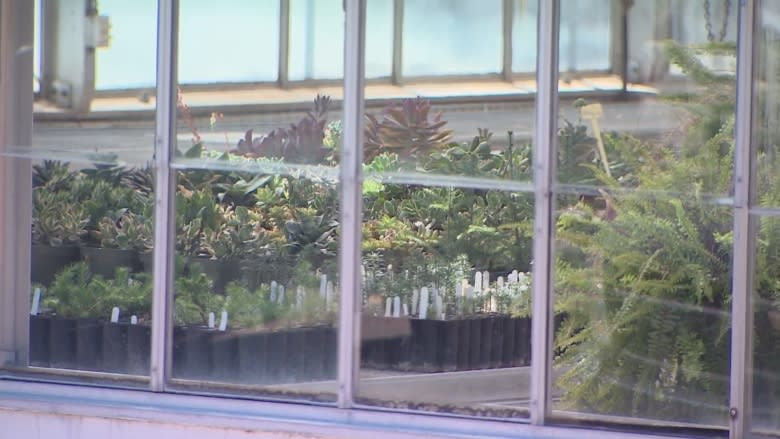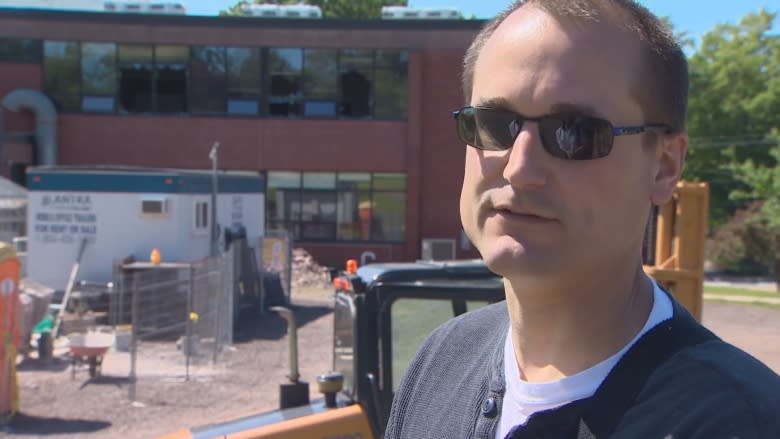Agricultural campus faculty, students worry about losing research after fire
The fire marshal has officially taken over the investigation of a fire at the main building of Dalhousie University's agricultural campus.
In the meantime, faculty and students with research inside the building are anxiously waiting to hear when they can get into the building to access their material.
Friday afternoon, the school held a meeting to answer questions from staff and students on the fire that broke out Wednesday night and lasted into the early hours of Thursday morning.
Restoration crews were on scene Friday. In an update on its website, the school said generator power has been restored to the new section of the Cox building.
Professor Nancy McLean says her lab is in the older, more heavily damaged section, and she is concerned that freezers that contain samples of bees with pollen on their bodies are thawing.
McLean and her PhD student looked into the windows of their basement lab Friday, hoping to salvage the bee samples.
"It was very disturbing. We collect bees — we don't like to collect bees — but we have to collect a sub sample of what we document," McLean said. "We don't want those collected bees to be useless. We want to collect them so we can hopefully have data that will be used to support more pollinators."
McLean said they are mainly studying how bees interact with blueberry blooms, which are now over in Nova Scotia. Only a week is left to study the blooms in New Brunswick and P.E.I.
McLean said it was difficult to view the wreck of items she's collected over more than 30 years of work.
"I saw a lot of paper material on the floor in water. I saw Styrofoam containers that had been floating around on the floor. The ceiling tiles were on the floor. Some were on my computer. It was just really devastating," she said.
Other students and faculty are concerned about their experiments on plants in the greenhouses. Those are heating up in the sun, and the plants are suffering as no one can get in to water them.
"Most people here would be working with living organisms and experiments are operating on a fairly strict timeline. If you can't look after those experiments or those organisms that you're working with, they will die," said Scott White, an assistant professor of weed science.
White does a lot of field work and says right now he can't get access to his lab to get the equipment he needs to conduct outdoor research.
"The clock's ticking," he said. "By next week if we can't get access to our lab and equipment, we're going to start losing things both indoors and outdoors, unfortunately."
The province's Office of the Fire Marshal said the investigation is still ongoing and it is too early to provide any information.






